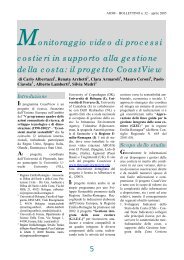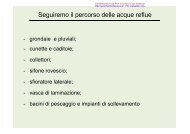The 21st Century climate challenge
The 21st Century climate challenge
The 21st Century climate challenge
Create successful ePaper yourself
Turn your PDF publications into a flip-book with our unique Google optimized e-Paper software.
1<strong>The</strong> 21 st <strong>Century</strong> <strong>climate</strong> <strong>challenge</strong><strong>The</strong> <strong>challenge</strong> is to sustainhuman progress today whilefacing the incremental riskscreated by <strong>climate</strong> changein the lives of a significantsection of humanityDeclaration on Human Rights establishes that“everyone has a right to life, liberty and personalsecurity.” Inaction in the face of the threatposed by <strong>climate</strong> change would represent a veryimmediate violation of that universal right.<strong>The</strong> principle of cross-generational equityis at the heart of the idea of sustainability.Two decades have now passed since the WorldCommission on Environment and Developmentbrought the idea of sustainable development tothe centre of the international agenda. <strong>The</strong> coreprinciple is worth restating, if only to highlighthow comprehensively it will be violated by acontinued failure to prioritize <strong>climate</strong> changemitigation: “Sustainable development seeks tomeet the needs and aspirations of the presentwithout compromising the ability to meet thoseof the future.” 81That vision retains a powerful resonanceand an application to public policy debates on<strong>climate</strong> change. Of course, sustainable developmentcannot mean that every generation leavesthe world’s environment exactly as it found it.What need to be conserved are the opportunitiesfor future generations to enjoy substantivefreedoms, make choices and lead lives that theyvalue. 82 Climate change will eventually limitthose freedoms and choices. It will deny peoplecontrol over their destinies.Thinking about the future does not meanthat we should think less about social justice inour lifetime. An impartial observer might alsoreflect on what inaction in the face of <strong>climate</strong>change might say about attitudes to socialjustice, poverty and inequality today. <strong>The</strong> ethicalfoundation of any society has to be measuredpartly on the basis of how it treats its mostvulnerable members. Allowing the world’s poorto bear the brunt of a <strong>climate</strong> change problemthat they did not create would point to a highlevel of tolerance for inequality and injustice.In human development terms, the presentand the future are connected. <strong>The</strong>re is no longterm trade-off between <strong>climate</strong> change mitigationand the development of human capabilities. AsAmartya Sen argues in his special contributionto this Report, human development andenvironmental sustainability are integral elementsin the substantive freedom of human beings.Tackling <strong>climate</strong> change with well-designedpolicies will reflect a commitment to expand thesubstantive freedoms that people enjoy todaywithout compromising the ability of futuregenerations to build on those freedoms. 83 <strong>The</strong><strong>challenge</strong> is to sustain human progress todaywhile facing the incremental risks createdby <strong>climate</strong> change in the lives of a significantsection of humanity.<strong>The</strong>re is a fundamental sense in which <strong>climate</strong>change <strong>challenge</strong>s us to think differently abouthuman interdependence. Greek philosophersargued that human affinity could be understoodin terms of concentric circles stretching out fromfamily, to locality, country and the world—andweakening with every remove from the centre.Enlightenment economists such as AdamSmith and philosophers such as David Humesometimes used this framework to explainhuman motivation. In today’s economically andecologically more interdependent world, theconcentric circles have become closer to eachother. As the philosopher Kwame Appiah haswritten: “Each person you know about and affectis someone to whom you have responsibilities: tosay this is just to affirm the very idea of morality.” 84Today we “know about” people in far-distantplaces—and we know about how our use of energy“affects”their lives through <strong>climate</strong> change.Viewed from this perspective, <strong>climate</strong> changeposes some tough moral questions. Energy useand the associated emissions of greenhouse gasesare not abstract concepts. <strong>The</strong>y are aspects ofhuman interdependence. When a person switcheson a light in Europe or an air-conditioning unitin America, they are linked through the global<strong>climate</strong> system to some of the world’s most vulnerablepeople—to small-scale farmers eking outa living in Ethiopia, to slum dwellers in Manila,and to people living in the Ganges Delta. <strong>The</strong>yare also linked to future generations, not onlytheir own children and grandchildren but also tothe children and grandchildren of people acrossthe world. Given the evidence about the implicationsof dangerous <strong>climate</strong> change for povertyand future catastrophic risks, it would be a denialof morality to disregard the responsibilities thatcome with the ecological interdependence that isdriving <strong>climate</strong> change.60 HUMAN DEVELOPMENT REPORT 2007/2008




